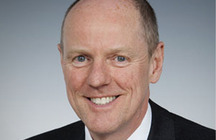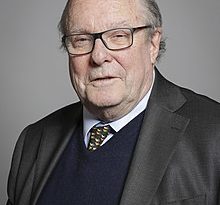Nick Gibb – 2014 Speech on Education Autonomy
Below is the text of the speech made by Nick Gibb, the Minister of State for Schools, on 12 November 2014.
The government’s education reforms over the past 4-and-a-half years have been the most far-reaching for a generation. Our reforms to the curriculum, making it more knowledge-based and academically rigorous – and our focus on raising standards of pupil behaviour in the classroom, enabling teachers to spend more time teaching – are both key elements of this reform.
But today I want to talk about our structural reforms that have delivered professional autonomy. At the centre of these is academisation, making schools free from local authority control. Accompanying this were numerous smaller reforms, designed to pass powers back to teachers and heads – the aim, to let a thousand flowers bloom.
We are now in the enviable position of being able to see which of these flowers have bloomed the brightest. I first became Shadow Schools Minister in 2005, and after 9 years of witnessing some of the most gifted educators in England, I am repeatedly struck by a new vibrancy and excitement in the English education system.
Schools are, with no shadow of a doubt, improving.
As of this summer, the proportion of schools judged ‘good’ or ‘outstanding’ by Ofsted at their most recent inspection reached 80%, compared with 70% in 2012.
Our reforms to GCSEs are helping reverse the decline in the number of pupils taking rigorous academic qualifications. The number of pupils taking challenging EBacc subjects has risen dramatically under this government. In 2010, only 22% of pupils in state-funded schools entered all EBacc subjects. In the most recent academic year, this rose to almost 39%. Over the same period, entries to history or geography have risen from 48% to 65%, and entries to languages from 40% to 50%.
My mother was a primary school teacher, so early years education has always been a key concern for me. I am delighted that the number of 6-year-olds able to decode simple words and pass the phonics screening check at the end of year 1 has increased from 58% in 2012 to 74% in 2014. That’s 102,000 more 6-year-olds on track to be reading more effectively as a direct result of this policy.
The number of persistent truants has fallen from 433,130 in 2009 to 2010, to 300,895 during the last academic year.
Autonomy is not about government directives, committees of experts, quango worthies or national strategies costing hundreds of millions of pounds. It is about associations of like-minded people, bound by a common purpose – academy trusts, teaching school alliances, independent training organisations, charities, social enterprises and online communities. Call it civil society – call it the third sector. It is with these little platoons of idealistic people that the future of our school system lies.
This was why this government launched the free schools programme in 2010. We wanted to provide outlets for idealism – opportunities for dedicated groups of individuals who believed they could improve school provision.
Such groups of individuals have exceeded our expectations. The best academy chains, such as Ark Schools and the Harris Federation, have expanded and replicated their proven success. Ark Schools have opened 3 free schools, with 8 more in development. Likewise, the Harris Federation has opened 8 free schools, with 5 more in development.
And we have seen, much older institutions play a new role in educating our young people. The London Academy of Excellence sixth-form college was established 2-and-a-half years ago by a collection of independent schools including Brighton College, Eton College and Highgate School.
Situated in Newham, the LAE’s ambition was to channel the brightest pupils from London’s most deprived borough into top universities. 2 years later, its A level results beat those of several well-known public schools. 68 pupils from its first cohort gained places at Russell Group Universities, including 5 at Oxford and Cambridge. This year, more London Academy of Excellence pupils were offered places at Oxbridge than has ever been achieved by the entire borough of Newham in any previous year.
Since 2010, this government has also pioneered university technical colleges, a new type of school geared towards providing technical education for 14- to 18-year-olds. Known as UTCs, they bridge the gap that too often exists between educational provision and the local job market by linking with a nearby university or employer. We now have the Silverstone UTC, Liverpool Life Sciences UTC and UTC Sheffield.
Leading this innovation in vocational education has been Kenneth Baker, a truly inspiring public servant. Now in his ninth decade, Kenneth works tirelessly as chairman of the Baker Dearing Trust and has helped establish 30 UTCs already, with 26 already approved to open.
In the same period, our academies programme has ensured that over 1,200 of the worst-performing schools have been taken over by successful sponsors or headteachers – the majority of which are already leading other schools with a proven track record of academic achievement. We have given the very best heads control over many more schools, with the freedom they need to ensure that the children in their care receive the education they deserve and need.
And they have succeeded. Underperforming schools taken into the academies programme and placed under the leadership of great heads are improving more rapidly than those schools which remain in the hands of local authorities.
This element of the academies programme is a deliberate continuation of an approach begun under the previous government, which we have championed and expanded.
But the government firmly believes that the autonomy previously available to sponsored academies should be available to all schools.
I am delighted that since 2010 more than 3,000 schools – including many of our highest-performing schools – have chosen to become academies. These schools have seized the opportunity to raise standards by using the freedoms we have given them. They can now vary their curriculum, extend the length of their school day and employ the best teachers – regardless of whether they have received formal qualified teacher status.
In each of these cases, parts of civil society – be they teachers, school leaders, employers, philanthropists, universities or parent groups – are empowered to decide how future generations should be educated.
There are now 646 sponsors, 550 chains of 2 schools or more, and 40 chains of at least 10 schools – of these, 9 are responsible for 30 schools or more. All of these rightly compete to raise academic standards for their pupils. And within and between chains, this spirit of competition is accompanied by a culture of collaboration – professionals working together to improve children’s education.
Surveying today’s educational landscape, I derive enormous optimism from other organisations that are being established to support schools. Since Teach First was founded in 2003, 38 social enterprises have been set up by former participants in the programme – all examples of what can be achieved when real autonomy is delivered.
Take one of these – the National Orchestra for All. Founded by Marianna Hay in 2011, the NOFA takes 150 musicians each year from schools in London and the west Midlands and forms a full orchestra, rehearsing throughout the year and giving pupils from these schools the opportunity to play in such venues as the Royal Albert Hall, the Southbank Centre and the Royal Academy of Music.
Similarly, the Brilliant Club was formed in 2011 to bring fruits normally preserved for the more privileged within the reach of the less advantaged. It places postgraduate students in challenging schools to run university-style tutorials for groups of promising pupils. So far, the Brilliant Club has worked with 150 schools around Britain, connecting over 250 doctoral and postdoctoral researchers with 5,000 pupils.
In September this year I had the privilege of attending a ResearchEd conference. These events have brought fresh thinking and new energy to debates about teaching practices in English schools. ResearchEd was founded in 2013 by teachers – not by the government or university education faculties. These teachers, led by Tom Bennett, are determined that what happens in their classrooms should be informed by evidence, not fad.
And Teach First alumni such as Robert Peal, Kris Boulton, Katie Ashford and Joe Kirby are challenging current education orthodoxies. Their passionate iconoclasm, which refuses to accept mistaken and damaging conventional wisdom, is inspirational.
Similarly, the Institute of Ideas – run by Claire Fox – has long been arguing that children deserve a curriculum which is more knowledge-based and rigorous. Its debating competition – Debating Matters – has reinvigorated formal debating in state schools. It was founded in 2002 by a physics teacher from south London called David Perks, today the principal of a free school in east London. Likewise, the debating competition Debate Mate brings 350 undergraduates from top universities to train young debaters in 220 challenging, inner-city schools around England. We are seeing the beginnings of an academic renaissance in our education system.
Autonomy is at the heart of that renaissance. The great liberal politician Lord Beveridge is often invoked as the father of the British welfare state. Less often cited than the 1942 Beveridge report is a report he wrote in 1948 entitled ‘Voluntary Action’. In it, Beveridge specifically warned against monopolistic state provision, in which new ideas and new institutions are quashed instead of nurtured.
Beveridge contrasted a totalitarian state, or a state monopoly, with a free society. He wrote that in a free society, ‘discontented individuals with new ideas can make a new institution to meet their needs. The field is open to experiment and success or failure; secession is the midwife of invention.’
In that passage, Beveridge offered the best-possible articulation of what this government’s school reform agenda has aimed to achieve.
Beveridge was a liberal in the truest sense of the word. He believed that whilst services such as education can be paid for by the state, they should be provided by civil society. Our reforms have unleashed a previously untapped educational idealism within English civil society engaging thousands of groups and individuals, from millionaire carpet salesmen to Premiership football clubs, from high-tech companies to medieval guilds.
As Minister for School Reform, I delight in seeing the fruits of this autonomy in all their vivid abundance. It reaffirms my belief that good government does not improve public services. It enables public services to improve themselves.


